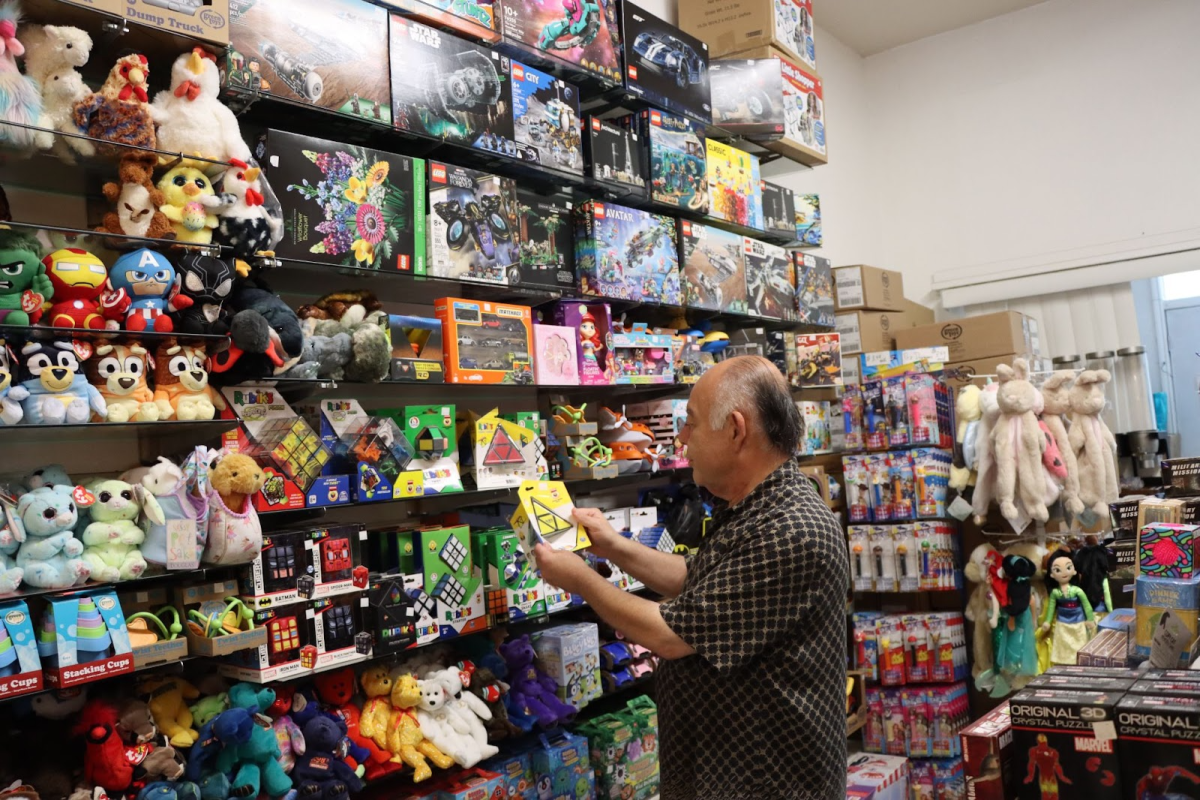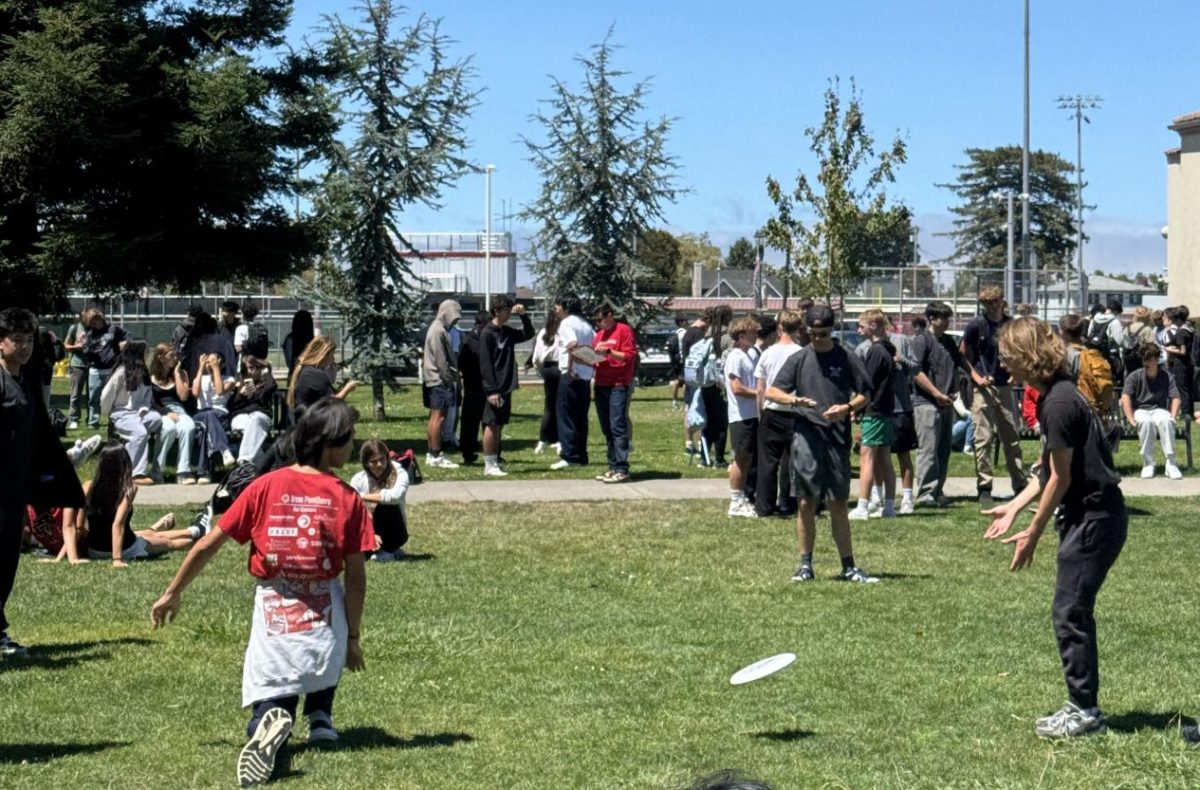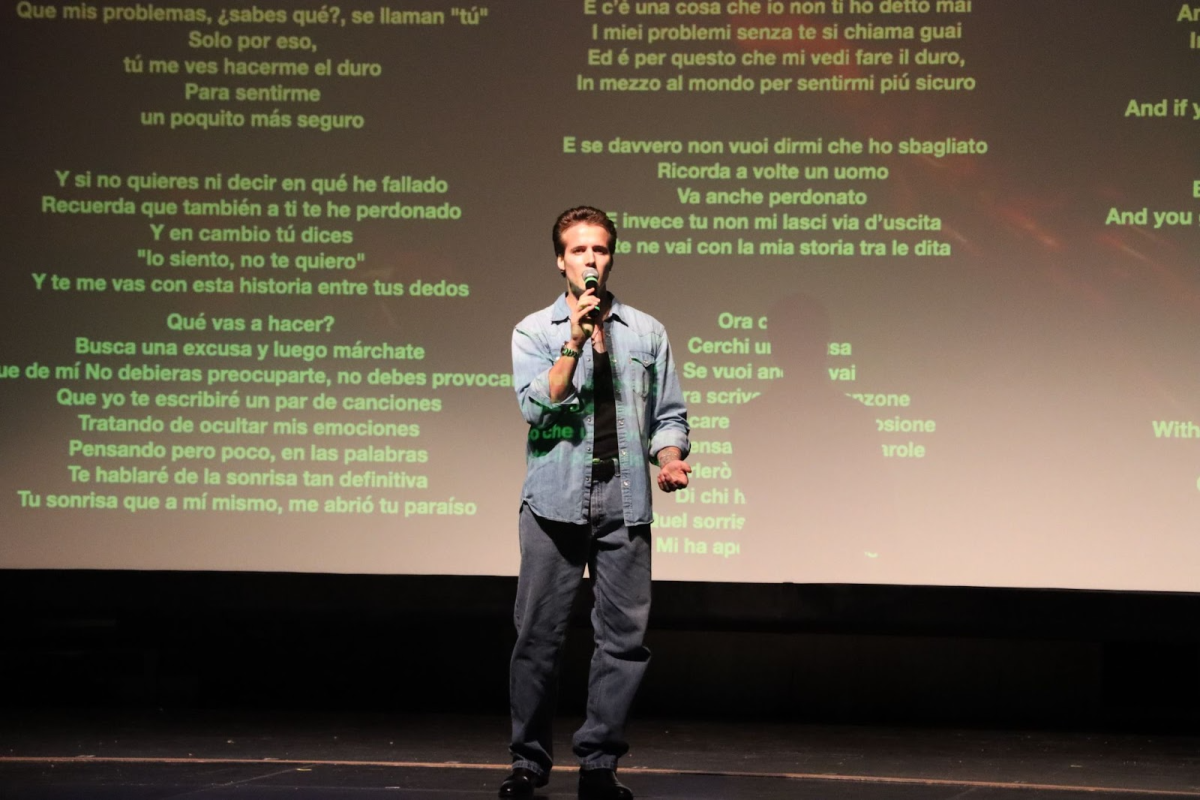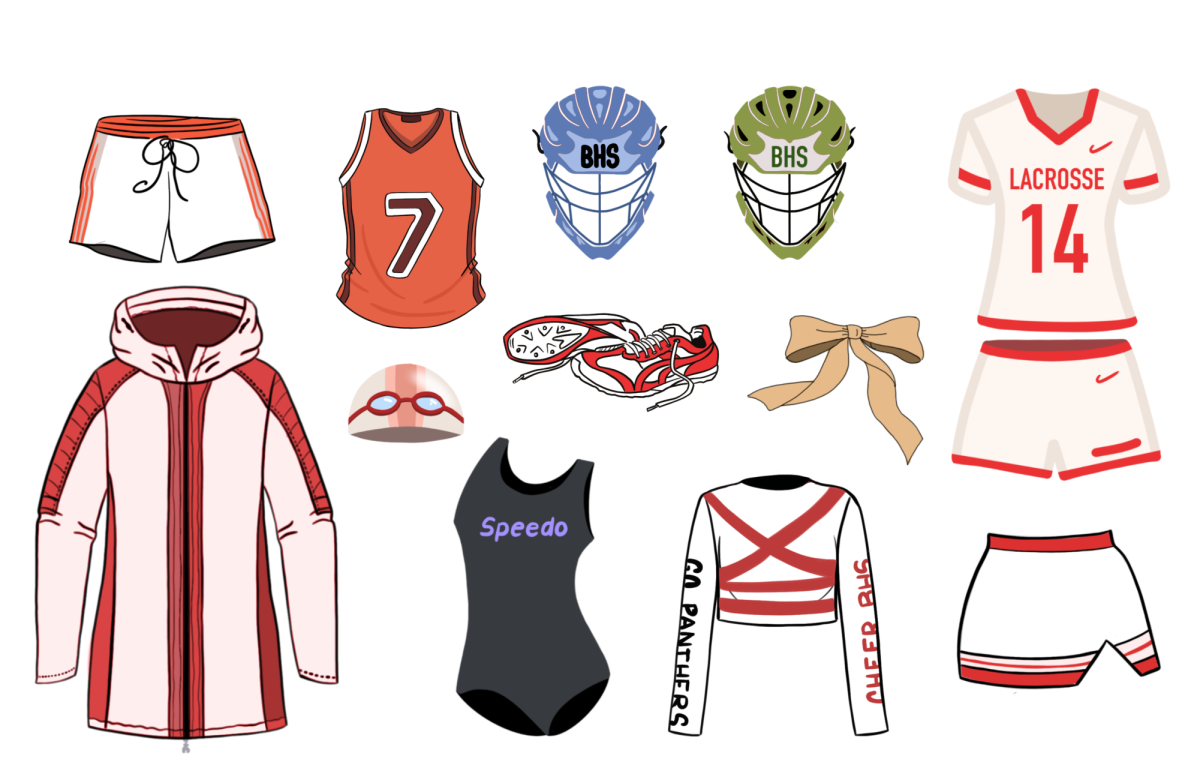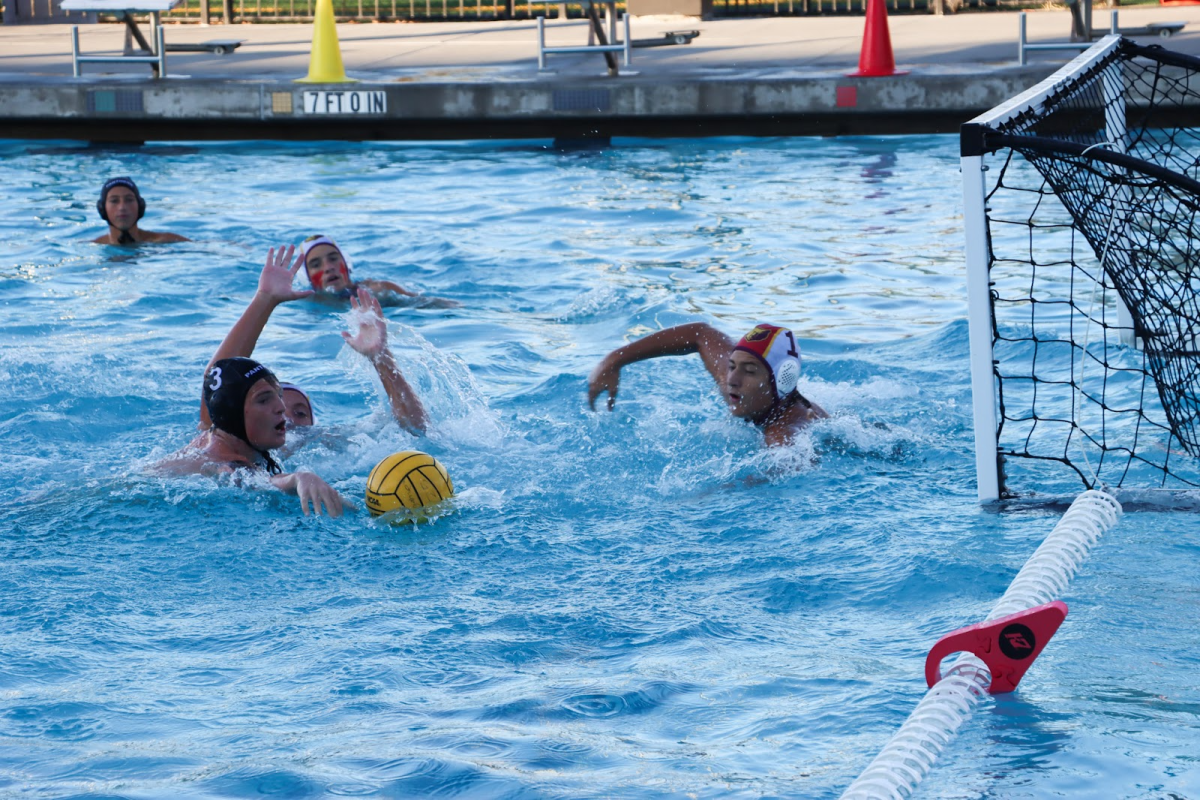Mysterious sweat stains, odd sizing, worn fabric on uniforms — this isn’t an ideal sight for anyone, but it’s the reality for girls’ varsity basketball. While not all Burlingame sports teams experience this problem, equipment and uniform disparities persist due to district funding constraints.
Senior Miranda Sibley, who plays flag football, basketball, and lacrosse, is familiar with these discrepancies. Sibley receives new jerseys in flag football and bags, sticks, and helmets in lacrosse, but the girls’ basketball team uses old, worn uniforms.
“Our flag football [uniforms] are very nice because they’re brand new,” Sibley said. “Basketball, I would say, are the worst uniforms that I’ve ever experienced. They’re really interesting[ly] fit and have a lot of stains on them.”
According to Athletic Director John Philipopoulos, the San Mateo Union High School District (SMUHSD) sets a timeline for uniform changes.
“It basically depends on the durability of the uniform,” Philipopoulos said. “At a minimum, we like to wait three years, but if we can stretch that into four or five that is even better.”
SMUHSD also sets guidelines for the equipment they provide. District-provided equipment — listed as “essential items” — includes uniforms, balls, safety equipment, and other gear deemed necessary for each sport. However, coaches and players agree the provided items don’t cover all the needed equipment.
“I feel like [teams] receive adequate funding for the must-haves,” flag football coach Nicole Carter said. “There could be more funding for the extras… anything that we would want in addition like hurdles, we are responsible for having to fund.”
The girls’ basketball team has worn the same uniforms for over three years. Although the district funds essentials, Sibley says the team must pay out-of-pocket if they want new uniforms before the scheduled replacement timeline.
“Varsity has had the same ones since my freshman year, which is interesting because in all the other sports I have [played], we usually get new ones every two years,” Sibley said. “We had a lot of issues last year because we didn’t even have enough uniforms for everybody because of how many stained uniforms there were.”
Due to hygiene concerns, swimmers receive new suits annually. SMUHSD policy replaces district-provided equipment every three to five years, so teams run fundraisers to buy new apparel.
“We get new suits every year,” junior swimmer Catherine Kwong said. “They’re less sanitary to share with other swimmers year to year. So I think that’s mostly part of the reason why we need new ones each year, compared to other sports that may have to reuse them.”
Burlingame’s cheer squad receives its game uniforms and poms from the district but still needs to pay for separate bows, practice gear, and jackets out-of-pocket.
“It is pretty expensive since we’re paying for everything, so I think that the cost shouldn’t be as much, especially since we do [need] them all for the school sport,” junior cheerleader Maya Blouse said.
Cheerleaders keep everything they pay for but often need new practice gear anyways, as different coaches demand different equipment. As a result, the team has bought different practice gear each of the last two years.
“The bows were switched, so then we had to buy new bows. The jerseys were switched. We had to buy new jerseys,” Blouse said.
Aside from district funding, the Burlingame Athletic Booster Club provides supplemental funding for freshmen teams, assistant coaches, strength and conditioning coaches, tournaments, and scholarships. While uniforms and equipment remain outside the Booster Club’s jurisdiction, they allocate a small portion of funds yearly to work on ‘special projects’ to fund equipment the district doesn’t provide.
Every year, the Booster Club collaborates with Philipopoulos to send out an equipment request form, where coaches can request any additional equipment not already supplied by the district.
“Every year, we get far more proposals than we’re capable of funding,” Athletic Booster Club president Andrew Alfers said. “Last year, we ended up increasing our initial allocation from about $3,000 to $15,000, [but] we received $40,000 worth of requests in total. Our rule of thumb is that we typically fund requests from coaches that are either for safety-related items or equipment that we know will last a long time.”
However, fundraising success dictates equipment discrepancies. According to Philipopoulos, the better a team fundraises the more they can afford to purchase new equipment. Without fundraisers, all sports would be left with worn gear.
“The [equipment] that each team is getting should be relatively the same per sport. Quality of the jerseys and how often they’re replaced, should [also] be the same and be more closely monitored by the district,” Sibley said. “[Playing in stained uniforms] feels like disrespect and lack of care. Like you’re at the bottom of the barrel and nobody’s looking out for you.”



